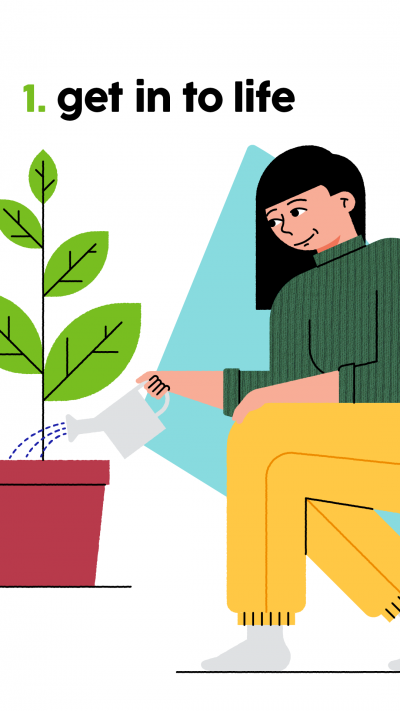
Set a goal or task that you want to achieve for the day - it can be something small like making your bed, going for a walk or calling a friend. Use this time to try some new hobbies and keep doing the things you love as best you can like reading.
Get in to life!
Get Into Life
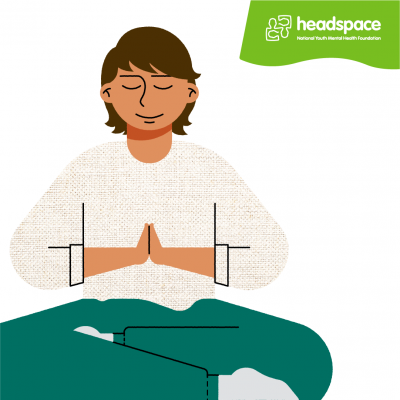
-
Learn skills for tough times:
It might be helpful to learn new coping skills to maintain and improve wellbeing. Try journaling thoughts and feelings, practice some breathing exercises, explore mental health apps or websites, create a new routine, or take a digital detox.
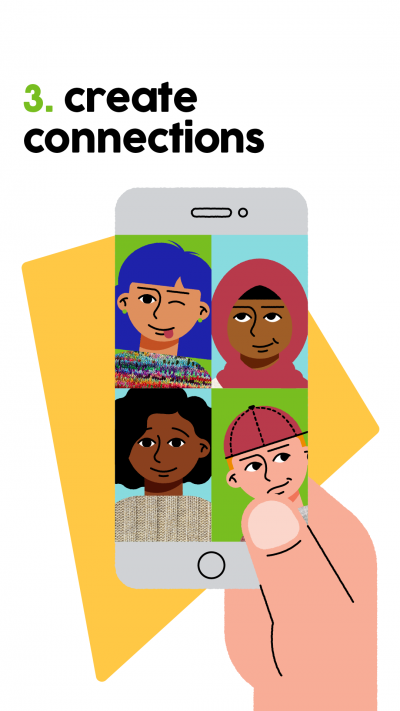
-
Create connections:
While we can’t physically connect with friends and loved ones, there’s so many other ways to stay connected. Try connecting by video chat through Zoom or house party or try a phone call with friends and family. Online video and board games can be
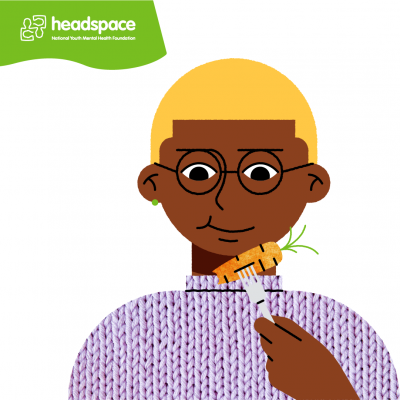
-
Eat well:
Minimise unhealthy snacks while in isolation. It’s good to develop coping strategies that are not related to food. Make sure your diet includes things like: colourful fruits and vegetables, foods high in fibre (wholegrain cereals and bread, beans, chickpeas, lentils and nuts), fermented foods like unsweetened yogurt, olive oil, and fish (tinned is fine).
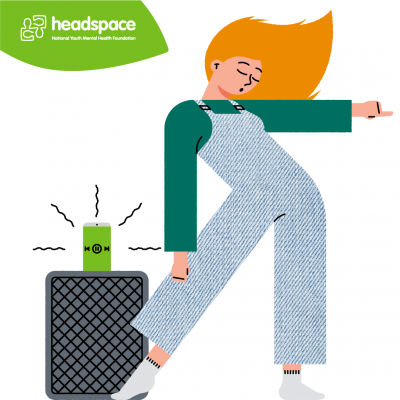
-
Stay active:
Try doing an online fitness program or a yoga class, challenge your friends to a push up challenge, get outside for fresh air or have a living room dance party – all great free ways to keep up physical and mental health.
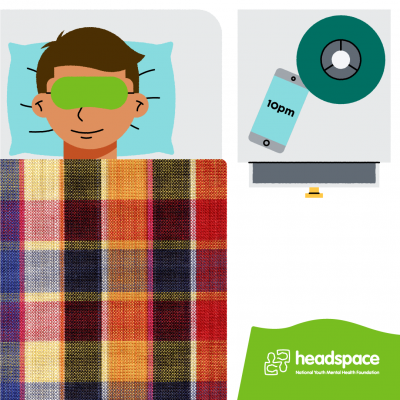
-
Get enough sleep:
Try to stick with a sleep routine. Go to bed and wake up at the same time as much as possible and aim for at least 8 hours of sleep a night. Switch off from electronics 30-60 mins before bed.
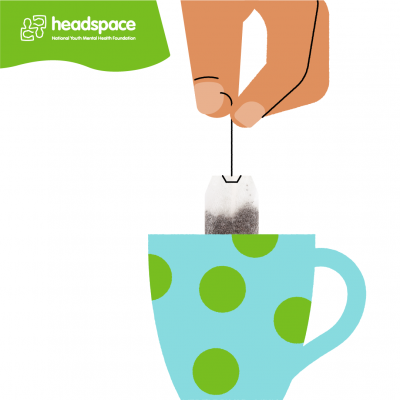
-
Cut back on alcohol and other drugs:
Be mindful of your use of alcohol and other drugs during isolation. Try a short break - start with a few days and then try a week, consider alternatives like herbal tea, water or a smoothie, and find new activities to keep you engaged.